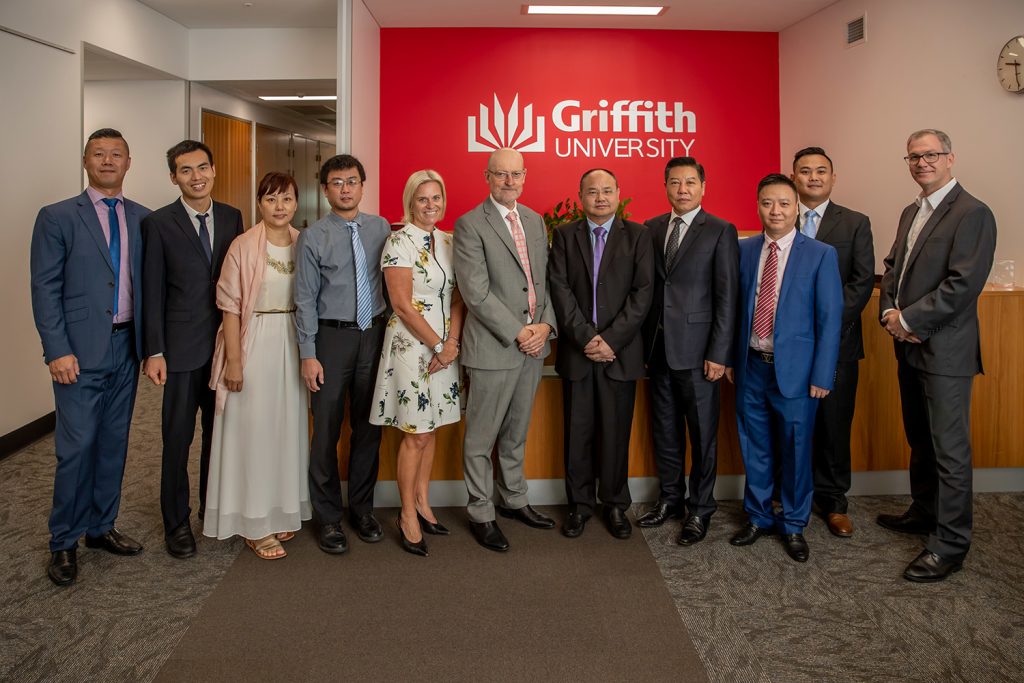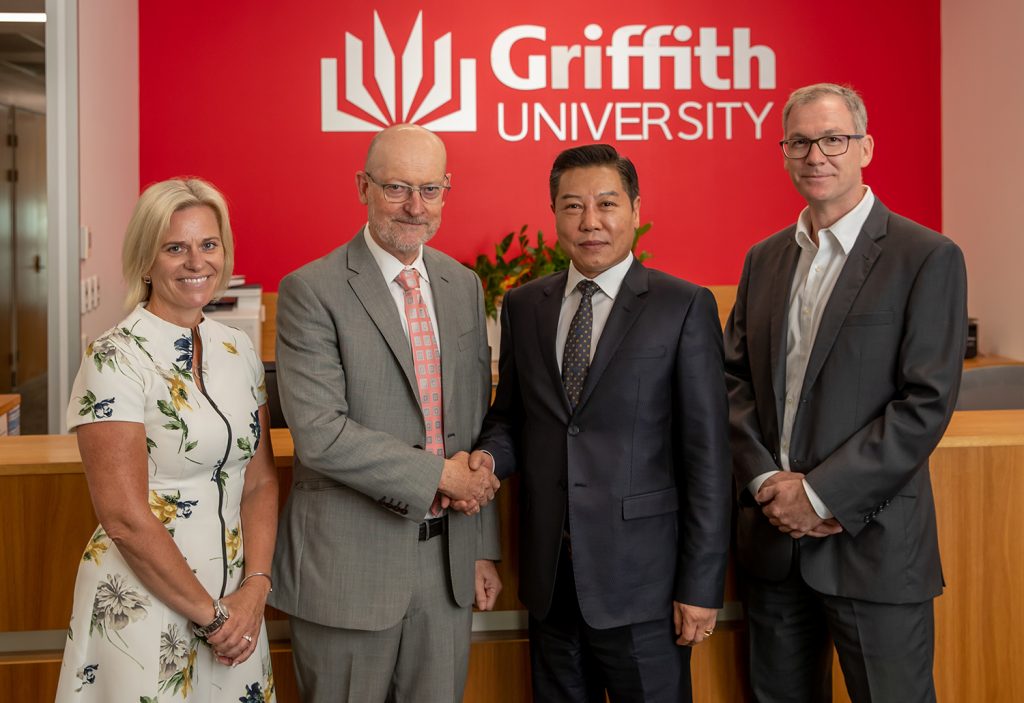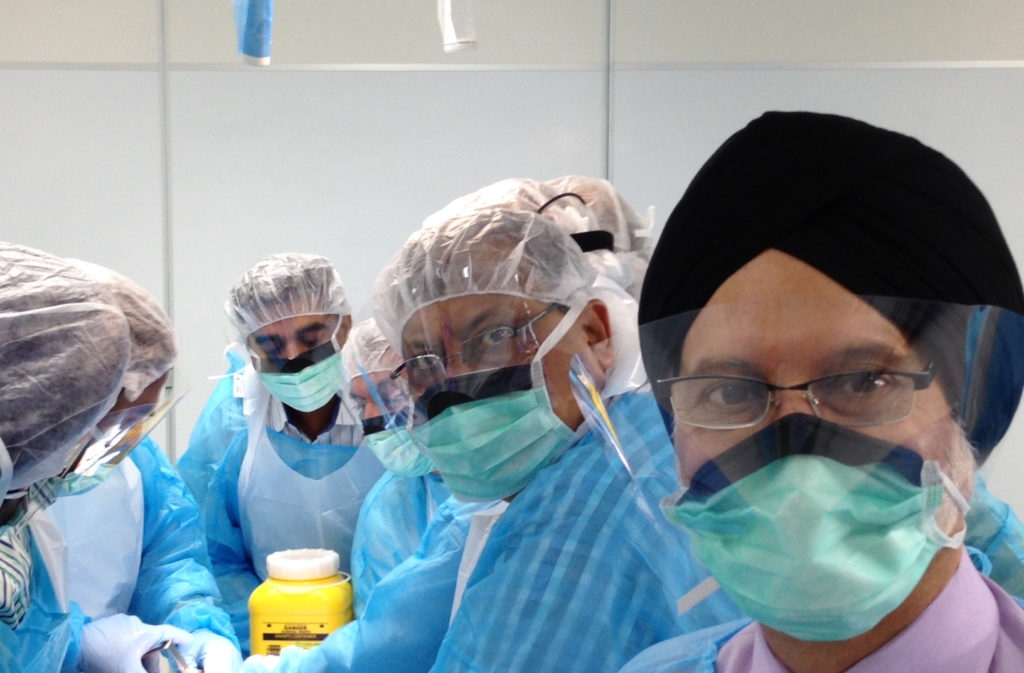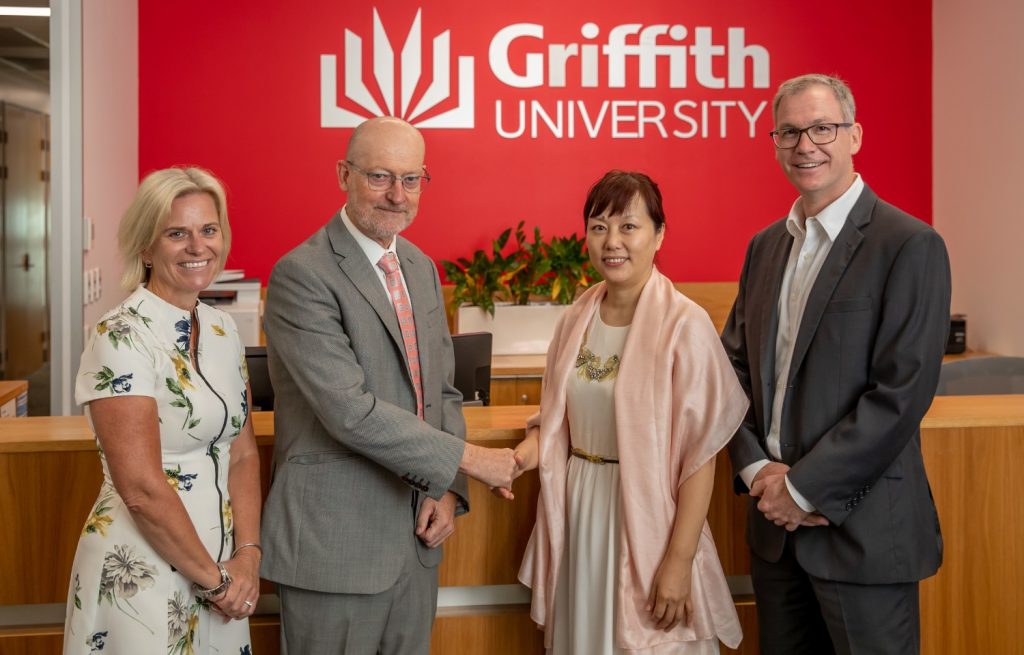
The Gold Coast Health and Knowledge Precinct (GCHKP) and Griffith University have signed complimentary memorandums of understanding (MOU’s) with a major Chinese biotechnology company associated with Beijing University, paving the way for significant research jobs and opportunities.
SinoBioway is a Chinese leader in developing biology-based technologies for medical, environmental and manufacturing applications and will set up an Australian landing company based in the GCHKP as it explores research projects with Griffith experts, and eventually a permanent presence in the Precinct.
The MOU with Griffith University is focused on stem cell research, identifying opportunities for project collaboration and joint research funding applications, promotion of Griffith capabilities and technologies in China and potential for clinical trials in China.
The Griffith MOU specifies a relationship with SinioBioway subsidiary Bantang National Gene Centre, based with the parent company in the Chaohu Economic Development Zone in Hefei, Anhui Province, while also allowing scope for broader opportunities across the company’s diverse operations.

Stem Cell Research to be focus for collaboration
The MOU signings follow a high level visit to the GCHKP by representatives of SinoBioway, including Chairman Li Yunming, that included presentations on the Precinct, a visit to the Gold Coast University Hospital and viewing of investment sites, and presentations and a laboratory tour to showcase Griffith’s research capabilities.
The Precinct’s innovation and co-working hub, Cohort, has been identified as a potential landing space for SinoBioway’s initial operations in Australia, providing ready access to researchers working on stem-cell based spinal injury repair at the Clem Jones Centre for Neurobiology and Stem Cell Research, Menzies Health Institute Queensland.
Opportunities have also been identified to utilised Griffith’s unique Neurobank resource, and the delegation was also given a presentation on an exciting Medtech funded project that is developing artificial wrist ligament, led by GCUH orthopaedic surgeon and Griffith Professor Randy Bindra and leading biomechanical engineer Professor David Lloyd.

Environmental technologies and advanced manufacturing opportunities to be explored

The MOU may also allow collaboration to be explored with the Centre for Clean Environment and Energy, led by Professor Huijun Zhao, who holds distinguished membership of the Chinese Government’s One Thousand Foreign Experts Program of “State Specially Recruited Experts”, and is also Director of Centre for Environment and Energy nanomaterials, at the Institute of Solid State Physics, Chinese Academy of Sciences (CAS) in Hefei.
As one of China’s largest bioengineering pharmaceutical firms, Sinobioway Group harnesses the growing power of biotechnology to address society’s biggest challenges. Since its founding in 1992, it has been devoted to the development of a thriving industry within a bioeconomic system, a concept developed by Sinobioway’s founder Aihua Pan.
Encompassing more than 50 subsidiaries, Sinobioway’s businesses span biomedicine, bioagriculture, bioenergy, bioenvironment, bioservice, biomanufacturing, and biointelligence, with more than a dozen locations across China.
The GCHKP and Griffith are also working closely with the Australian Zhongguancun Private Equity & Venture Capital Association to progress opportunities – Zhongguancun is a technology hub in Beijing that has been described as China’s silicon valley.
